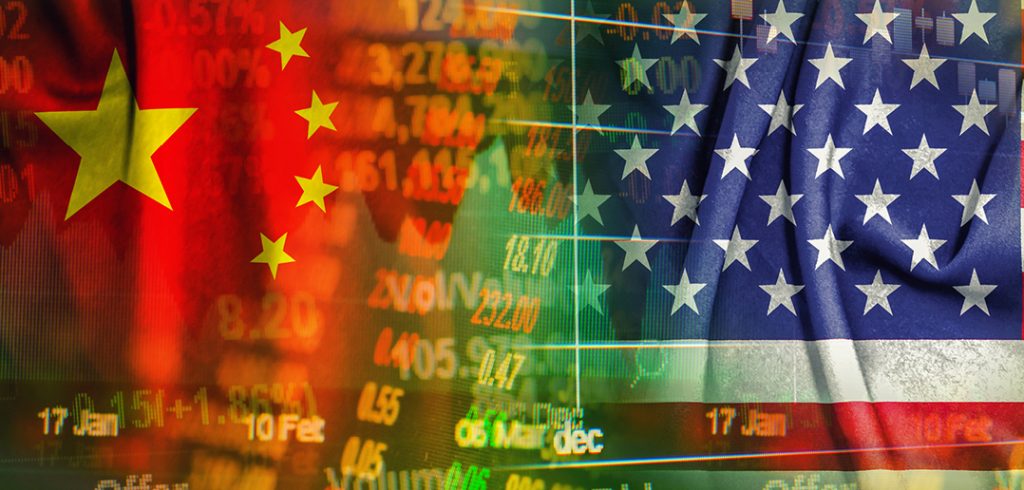Since the 1990’s, the Chinese government has enforced a policy dictating that foreign companies who wished to do business in mainland China must enter into a partnership with a Chinese company.[1] Specifically with respect to manufacturing, the policy required that a foreign company’s operations in China “be at least 50% Chinese owned,” which mandated a joint venture between the foreign and Chinese companies.[2] A joint venture is “a business arrangement in which two or more parties agree to pool their resources for the purposes of accomplishing a specific task.”[3]
Under this arrangement, foreign companies, including American manufacturers, gained valuable access to rapidly expanding Chinese markets, while Chinese companies benefitted from the influx of capital and exposure to technology from international sources.[4] Notwithstanding these mutual benefits, the joint venture policy has raised questions of whether Chinese firms have unjustly appropriated certain technologies and intellectual property from its American partners, as tensions over trade escalated between the United States and China in recent weeks.[5]
Arguments Against Joint Venture Requirements
Echoed by President Trump’s administration, recent economic studies indicated the Chinese partners in these ventures “benefit enormously from the arrangements” due to their access to leading American technology.[6] Evidencing concern with these allegedly lopsided arrangements, Republican lawmakers have proposed legislation that would subject future joint ventures with Chinese firms to review by the Committee on Foreign Investment in the United States.[7]
American companies have also expressed reservations.[8] From the perspective of American manufacturing companies, the potential threat of technological appropriation has deterred some companies from entering the Chinese market altogether.[9] One example is Tesla Motors, which until recent statements by the Chinese government indicating a potential relaxation of its policies, had declined to pursue sites in China for factories to produce its cars because it feared losing control of its technology.[10] Like Tesla, other American auto manufacturers and companies with sensitive technologies will likely remain hesitant to pursue Chinese business opportunities until the joint venture requirements are substantially relaxed.[11]
Arguments in Favor of Joint Venture Requirements
In contrast to the anxieties and reservations described above, many leading U.S. technology firms, such as IBM, have lobbied in favor of the unhampered continuation of U.S.-Chinese joint ventures.[12] IBM, which has existing joint-venture partnerships with Chinese firms, has expressed dire concerns that over-broad legislation would be disastrous for the U.S. economy, stating that the bill “could constitute the most economically harmful imposition of unilateral trade restrictions by the United States in many decades.”[13] In rejecting the proposed joint-venture regulation, technology firms have posited that controls on exports would be sufficient to address problematic transfers of intellectual property to China.[14]
Additionally, other economists have taken issue with the idea that the joint venture arrangements are advantageous solely to the Chinese joint-venturer.[15] The advantages to U.S. firms include access to the growing Chinese market, and the ability to partner with larger, more profitable Chinese businesses to bolster the success of the joint-venture opportunity.[16] Coupled with the recent statements by Chinese President Xi Jinping regarding a gradual rollback of foreign-ownership restrictions, these advantages will continue to attract American investment into partnerships with Chinese businesses.[17]
[1] See David A. Rood, China to Relax Joint Venture Requirements for Manufacturing, National L. Rev. (Apr. 19, 2018), https://www.natlawreview.com/article/china-to-relax-joint-venture-requirements-manufacturing.
[2] Id.; see Investopedia, Joint Venture, https://www.investopedia.com/terms/j/jointventure.asp (last visited Apr. 18, 2018).
[3] See Joint Venture, supra note 2.
[4] See Bob Davis, Study Shows Big Benefits to Chinese Companies from Joint Ventures with U.S. Firms, Wall Street J. (Apr. 12, 2018), https://blogs.wsj.com/economics/2018/04/12/study-shows-big-benefits-to-chinese-companies-from-joint-ventures-with-u-s-firms/.
[5] Id.
[6] See Keith Bradsher, China Loosens Foreign Auto Rules, in Potential Peace Offering to Trump, N.Y. Times (Apr. 19, 2018), https://www.nytimes.com/2018/04/17/business/china-auto-electric-cars-joint-venture.html.
[7] See Saleha Mohsin and Ben Brody, Tech Firms May Beat Trump in Debate Over Chinese Joint Ventures, Bloomberg (Apr. 19, 2018), https://www.bloomberg.com/news/articles/2018-04-17/tech-firms-may-beat-trump-in-debate-over-chinese-joint-ventures.
[8] See Bradsher, supra, note 6.
[9] Id.
[10] Id.
[11] See id.
[12] See Moshin, supra, note 7.
[13] Id.
[14] Id.
[15] See Davis, supra, note 4.
[16] Id.
[17] See Rood, supra, note 1.

